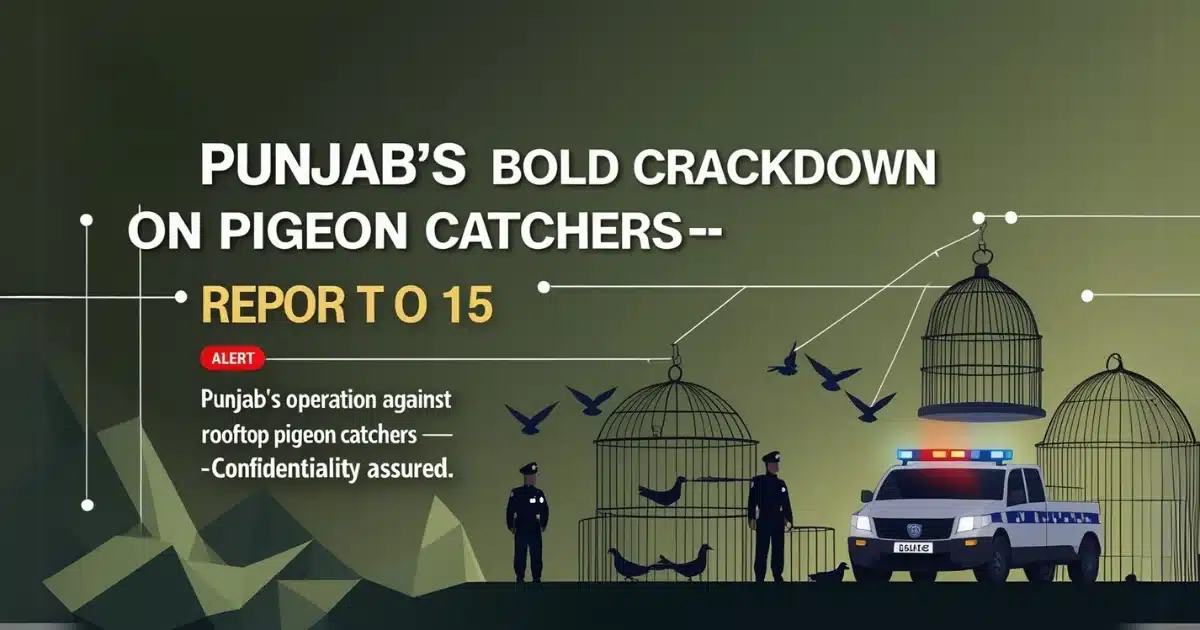The Punjab government has launched a statewide operation targeting pigeon catchers and illegal bird trappers, sparking relief among avian enthusiasts and neighbourhood residents. With complaints surging about rooftop cages, hooting sounds, and air firing to trap birds, Chief Minister Maryam Nawaz Sharif has greenlit a “grand operation” to protect poultry and wildlife. Here’s how it’s unfolding—and how you can help.
Pigeon Catchers Operation Details: From Sargodha to Gujranwala
The crackdown began in Sargodha city and will expand to urban hubs like Gujranwala. Authorities are prioritizing areas where residents report recurring pigeon thefts. Key measures include:
- 24/7 Helpline Access: Dial police helpline 15 or contact local agencies to report illegal traps.
- Confidential Informants: Tip-offs will remain anonymous to encourage community participation.
- Strict Penalties: Offenders face fines, equipment confiscation, and potential legal action.
Also Read: Beware of Social Media Scams: A New Threat to Watch Out For
Why This Matters: Protecting Poultry and Peace
Pigeon catching isn’t just a nuisance—it disrupts ecosystems, stresses birds, and fuels illegal trade. For residents, the noise and danger of air firing pose safety risks. Maryam Nawaz Sharif’s intervention signals a zero-tolerance stance, urging citizens to act as watchdogs.
How to Report Safely?
- Document Evidence: Snap photos of cages or suspicious activity.
- Share Locations: Provide exact addresses or landmarks.
- Stay Anonymous: Trust the helpline’s confidentiality protocols.
Also Read: Clearing Your Criminal Record for Punjab Police Jobs: A Lifeline for Aspiring Officers
Community Reactions: Hope and Hurdles
While many applaud the initiative, sceptics question enforcement in rural areas. “This is a step forward, but will it last?” asks a Gujranwala resident. Authorities insist the operation is continuous, not a one-off.
The Legal Angle: What Catchers Face
Under Punjab’s wildlife laws, trapping birds without permits carries fines and potential jail time. Repeat offenders risk heavier penalties, deterring habitual poachers.

